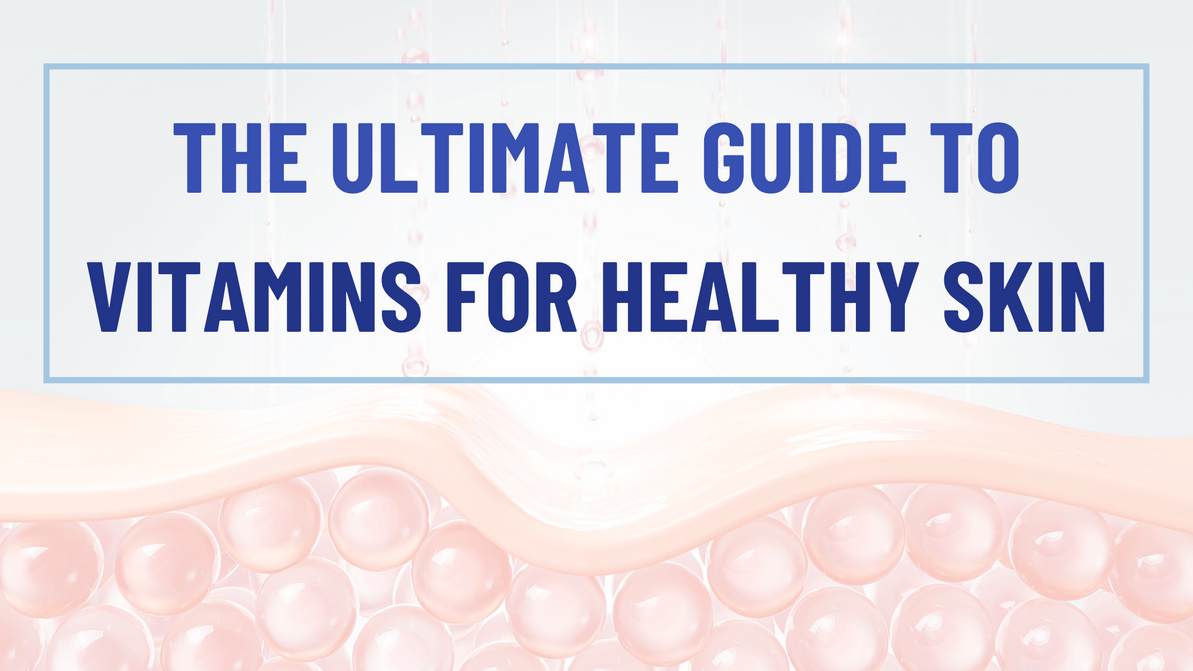The Ultimate Guide to Vitamins for Healthy Skin
The skin is our largest organ. While it isn’t vital like the heart or the lungs, it’s still very important. Your skin care reflects your overall health. Vitamins for healthy skin are necessary as deficiencies can show up as dull, dry, oily skin and wounds that heal slowly.
A multivitamin may help but won’t always give you the best dose for your needs. It is better to tackle a deficiency with the right vitamin instead of taking a generic one. Plus, getting vitamins and minerals from foods is always better than supplements.
Over the past couple of decades, the skincare world has become more focused on offering creams and lotions enriched with vitamins. While those aren’t bad, there isn’t enough scientific evidence to show they can help in case of a vitamin deficiency.
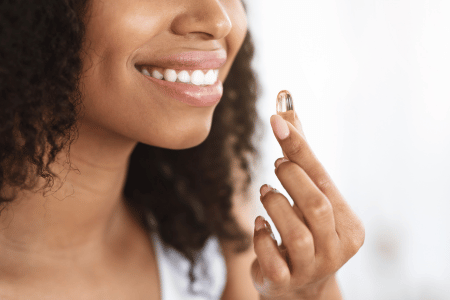
Best vitamins for healthy skin
Not all vitamins impact skin health. But some, like vitamin C or E, play an essential role in your skin’s ability to heal wounds. Others may help with dry skin and even premature aging. Here are the essential vitamins for healthy skin.
Vitamin A
Over the past few years, retinol, a form of vitamin A, has grown in popularity in the world of skincare. There’s a lot of evidence that shows retinol can help reduce fine wrinkles and may speed up wound healing.
It is possible to get too much vitamin A, especially if you eat foods rich in it, so be careful when supplementing with it. You can find vitamin A in foods like:
- Carrots
- Sweet potatoes
- Pumpkin
- Collard greens
- Kale
- Spinach
- Mangoes
- Cantaloupe
- Eggs
Applied topically, products containing vitamin A or retinol can cause skin irritations. To avoid a nasty reaction, first test it on a small area of your skin. Give it a few hours to a day to make sure there’s no irritation before trying it on a wider area.
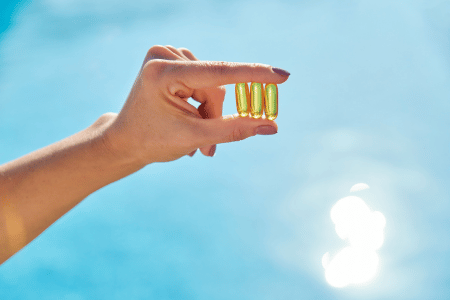
Vitamin K
You may have heard vitamin K helps with blood clotting. You’ll be pleasantly surprised to learn it can be very effective in helping with wound healing and scar reduction. Many doctors recommend creams and lotions with vitamin K post-surgery to reduce the amount of scarring.
Some say vitamin K can also reduce spider veins, stretch marks, and even those annoying dark circles under your eyes. The evidence is mostly anecdotal, but topical applications have little to no known side effects. Maybe it won’t help you as much as some claim, but it won’t hurt.
Vitamin K deficiencies are rare in the US, so most people won’t need to supplement. To get more of it in your diet, eat more foods like:
- Kale
- Spinach
- Swiss chard
- Cabbage
- Cauliflower
- Broccoli
- Romaine lettuce
- Asparagus
- Beef liver
- Chicken
Vitamin E
Vitamin E is an antioxidant. Its superpower? Protecting your skin against UV rays. That’s why you see it in many sunscreen products. When you apply it to your skin, vitamin E protects you from the harmful effects of UV light, preventing premature wrinkles and even sunburn.
There’s one thing you need to know, though. When you apply it topically, vitamin E only works for a short period. Sun exposure minimizes its effects. That’s why getting it through your diet is preferable, as your skin then “makes” vitamin E through sebum production.
Supplementing is always an option, but we always advocate for getting your nutrients from foods first. You’ll find vitamin E in foods such as:
- Almonds
- Hazelnuts
- Sunflower seeds
- Pumpkin seeds
- Olive and sunflower oil
- Spinach
- Kale
- Avocado
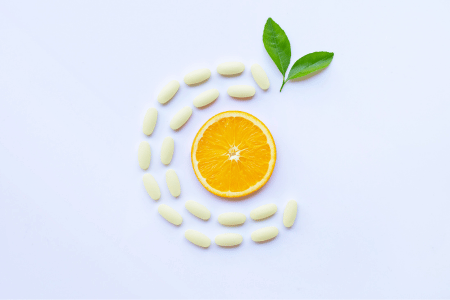
Vitamin C
Vitamin C is a powerful antioxidant. You may know it for its role in immunity. But did you know it can help with collagen production and may even protect you against certain forms of cancer? That’s why more and more companies include vitamin C in their skincare products, especially anti-aging ones.
When taken orally, vitamin C can also maximize the effects of your sunscreen lotion, protecting your skin against harmful UV rays.
In the Western world, vitamin C deficiencies are extremely rare. You’ll find it as an ingredient in most vitamin supplements, and it is very easy to get from foods. Excess of vitamin C is also nearly impossible, as your kidneys will filter it out in no time. If you want to get more of it in your diet, eat foods like:
- Citrus fruits
- Strawberries
- Broccoli
- Leafy greens
Vitamin D
Your skin can absorb vitamin D through sun exposure. If you stay out of the sun most of the day to minimize your exposure to harmful UV rays, you may be at risk for vitamin D deficiency. This risk increases even more in rainy and cold seasons when the sun might be a rare treat.
A 2009 study found that topical applications of vitamin D may help reduce skin inflammation and even help with psoriasis.
Plus, vitamin D is essential for bone health as it helps your body absorb calcium. Supplementing is often the way to go for many who are at risk for vitamin D deficiencies. There are foods that contain it, but it can be rather challenging to get an adequate amount from foods alone. Nevertheless, if you want to eat a diet rich in vitamin D, include things like:
- Fatty fish
- Egg yolk
- Fortified cereals
- Beef liver
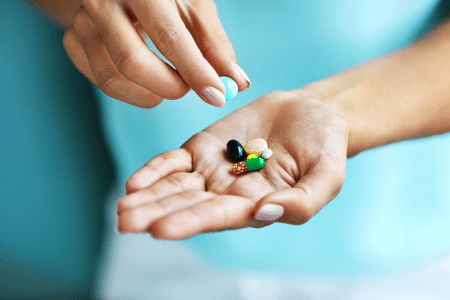
Minerals for your skin
Most people discuss vitamins for healthy skin, but there are a few minerals with great superpowers in this area.
Zinc is a mineral found in abundance in the outer layer of your skin. It speeds up wound healing and can protect your skin from UV rays. It is an antioxidant that may protect your skin against premature aging, though research in this area is scarce.
There’s one more “fun” fact about zinc and your skin. A deficiency in this important mineral may appear as a rash or eczema. However, unlike true eczema, this one will not respond to any moisturizers.
On top of many supplements, you’ll find zinc in foods like:
- Beef
- Pork
- Lamb
- Shrimp
- Crab
- Oysters
- Chickpeas
- Lentil
- Black beans
- Nuts and seeds
- Whole grains like quinoa
Selenium is another mineral that your skin will love. It has antioxidant properties, so it helps neutralize free radicals that could otherwise lead to premature aging. Together with other vitamins and minerals, selenium will also reduce the harmful effects of UV rays on your skin.
Plus, it can speed up wound healing and reduce inflammation, helping fight conditions like eczema, psoriasis, and acne. Research regarding selenium and its benefits for the skin is scarce, but what we’ve seen so far shows promising results.
Foods rich in selenium include:
- Brazil nuts
- Seafood
- Chicken and turkey
- Whole grains, especially brown rice and oats
- Eggs
- Dairy
Like all other vitamins and minerals, it’s best to get selenium through a balanced and take a supplement only when needed.
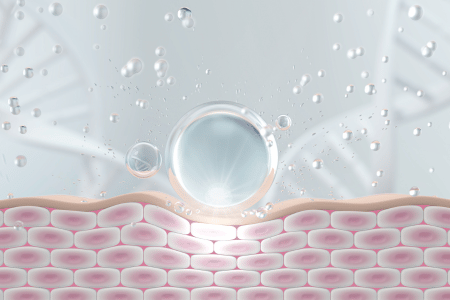
A note on wound healing
Vitamins and minerals can help with wound healing. The reverse is also often true. A deficiency in one or more of these vitamins and minerals will lead to slow wound healing.
The body has amazing ways of healing itself. As soon as a wound appears, it begins a complex clotting process and tissue regeneration. Sometimes, though, the process may take a bit more time than we’d want it and may leave lasting scars.
Having adequate vitamin and mineral levels helps your body work at its best. But even then, you may need a little more help. Sensitive, dry skin, for instance, could take longer to heal and could scar more, even if your vitamin levels are perfect.
Plus, you need to clean your wounds and take measures to prevent infections. One natural way to help this process is by using a solution containing colloidal silver. There has been a lot of discussion about the efficacy of these products. One of its most discussed properties is the antimicrobial one, which helps clean wounds and prevent infections.
One example is the OTC gel for topical wound care and first aid management, which can fight infection naturally. It is FDA-approved and can reduce levels of Staphylococcus Aureus (staph), Escherichia Coli (e coli), MRSA, fungi such as Candida Albicans, and more.
Of course, don’t forget that some wounds require more than natural remedies, so don’t hesitate to seek medical attention.
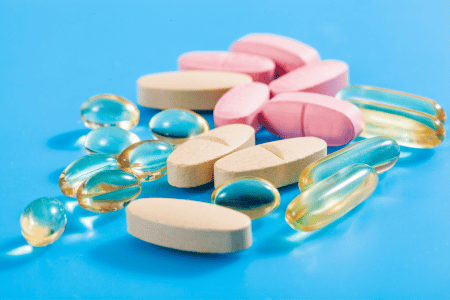
The bottom line
Your skin is your largest organ and a very important one at that. Taking care of it requires paying attention to a lot of small yet important lifestyle aspects. Sun exposure, long baths, and an unhealthy diet can have a powerful impact on how your skin looks and feels.
Vitamins and minerals play a crucial role in skin health. Some will assist with wound healing, others have antioxidant properties, and others will protect you from the harm of UV rays.
Eating a balanced diet that will ensure adequate levels of all vitamins and minerals is always best. But if you need to supplement, check out our shop. You’ll find a wide variety of vitamins and minerals, and even a good daily multivitamin, for those times when your diet is anything but balanced.
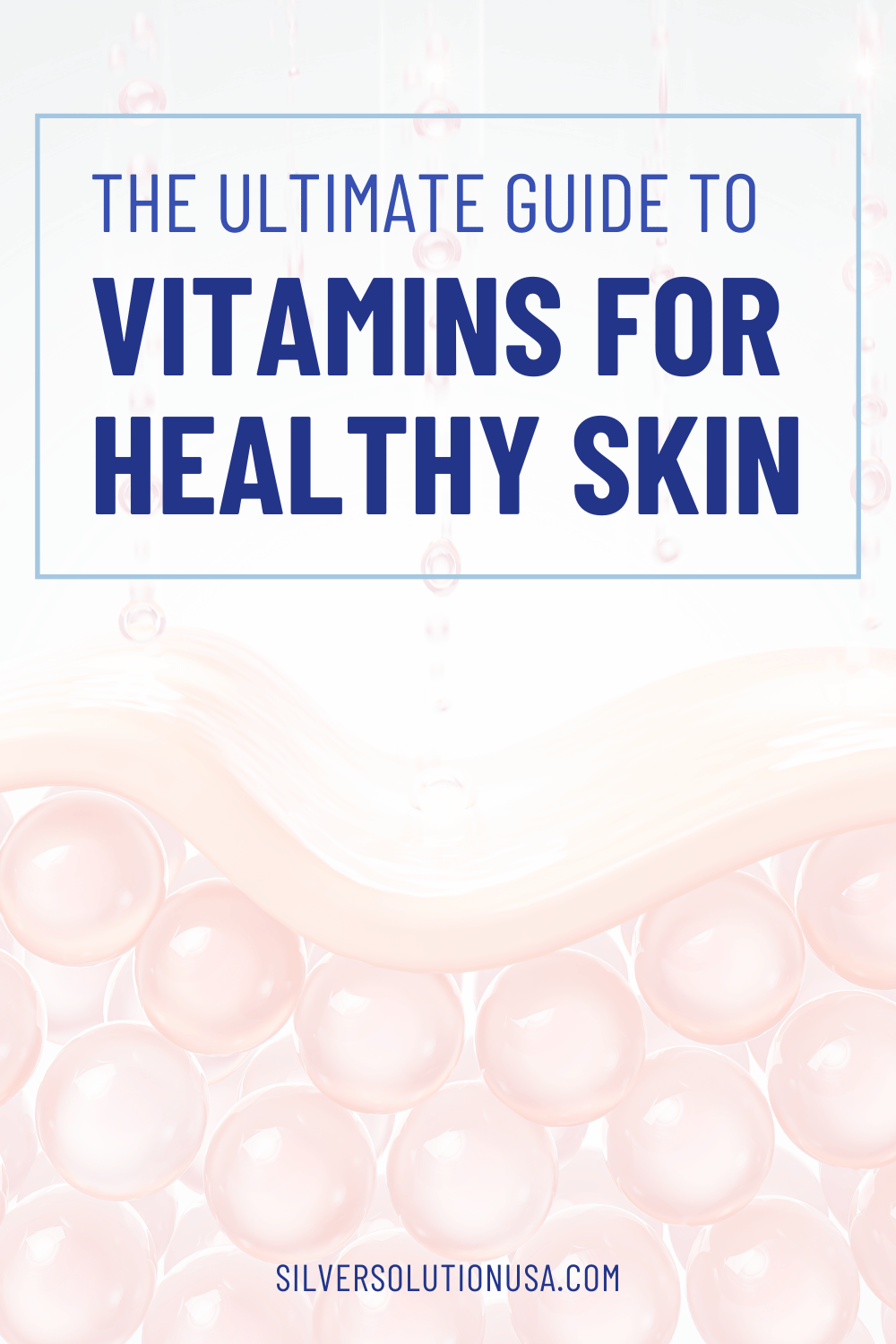
Health/Medical Disclaimer
This blog post does not provide health or medical advice. This blog post is for informational and educational purposes only and is not a substitute for professional health or medical advice. Before taking any actions based upon such information, we encourage you to consult with the appropriate medical and healthcare professionals. We do not provide any kind of health or medical advice. The use or reliance of any information contained on this blog is solely at your own risk.
Sources
http://edis.ifas.ufl.edu/pdffiles/FY/FY20900.pdf
https://pubmed.ncbi.nlm.nih.gov/19702033/
https://ods.od.nih.gov/factsheets/Zinc-HealthProfessional/
https://ods.od.nih.gov/factsheets/Selenium-HealthProfessional/
Recent Posts
-
Are sunscreen ingredients harmful?
Sunny days can bring a lot of fun. Going out for a swim, spending time in nature, or relaxing on the …18th Mar 2024 -
The Veggie Debate: Does Cooking Vegetables Destroy Nutrients and the Best Ways to Cook Them
Vegetables are one of the healthiest foods you can choose. Some people downright hate them, while so …4th Mar 2024 -
Best Foods for COVID Recovery and Prevention
A few years ago, a new virus took the world by surprise. COVID-19 may look like the flu on the surfa …19th Feb 2024

